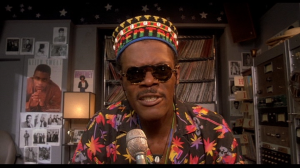
Attention, colleague. Perchance might I suggest that you are obligated to reduce the temperature.
I wasn’t going to write this piece. Indeed, I was hoping to finish a really nice piece about the impact of the Steven Salaita case on the norms of public behavior for academics in the age of instantaneous, mass publishing. But I woke up this morning to a ton of commentary, polls, snark, and accusations—all in the philosophical part of the interwebs.1 I actually am not inclined to link to any of it because (i) boy howdy does so much of it make academic philosophy look bad, (ii) much of the discussion takes place in walled gardens anyhow, and (iii) other people are better situated to address issues of responsibility and blame. Naturally I have views about many of these issues, but I am more strongly committed to the idea that much of those discussions haven’t been—and likely aren’t going to be—constructive; they don’t do much to fix the discipline. I mean, yeah, not everyone is equally to blame, but there is a lot of blame to go around.2
While the current unpleasantnesses online and in meatspace might just be growing pains of a field with a long history of problems with structural violence coming to grips with changes in demographics, methods, institutions, conceptions of professionalism, communication technologies, and the like, I worry that treating these unpleasantnesses as something that will just work itself out is a mistake.
The public faces of philosophy
Given the siloed and specialized nature of academic disciplines, few outside of philosophy read philosophy. As a result, they aren’t likely to have a rich understanding of what it is we do, the value of our labor, and our place in a university. Folks outside of philosophy periodically deride the importance of philosophy, and a standard—though inadequate or incomplete—response to such attacks is the suggestion that we are experts in argumentation. After all, we’re the ones who teach logic and critical thinking courses, and we frequently provide the critical analysis for other fields.
But when kerfuffles . . . erm, kerfuff, attention is drawn to our public face. Sure, there are folks who say all the right things about the dignified traditions that philosophers steward. Being what it is, hyperlinked media might lead folks who are noodling around on the internet in the aftermath of kerfuffles to places that suggest that maybe philosophers aren’t really that good with arguments, are subject to the same sorts of bad behavior in online fora that everyone else is, tend to overestimate their epistemic position, and the like. A perfectly natural response for an outsider to have to this sort of bad behavior is: “Well, if they don’t actually argue well, what the hell is it that they do? Is philosophy just an inferior kind of literary scholarship—like what we study in a literature class, but with strict rules about what counts as a good response to a text and a preference for stultifying or opaque prose? What good is that?”
